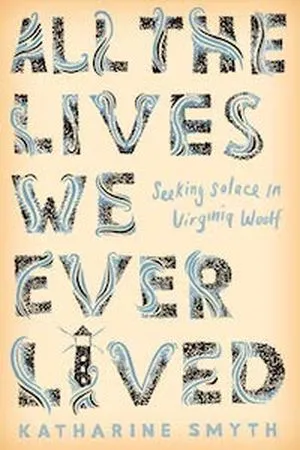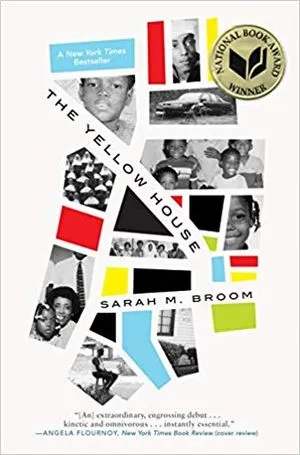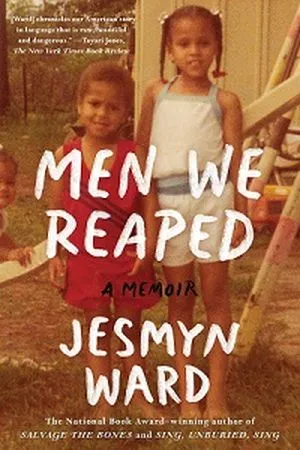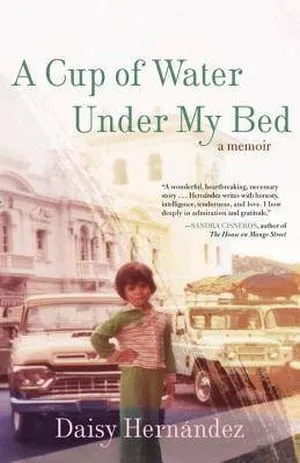
10 Lyrical Memoirs That Will Enchant You
Only in the last few years have I really found joy, catharsis, and peace in memoir. In some ways, I might owe my new love of the genre to growing up, to growing more introspective. But I think that it’s truly due to the discovery of creative and lyrical memoir, of books that bend genre and play with words, that are poetic and read like novels or that blend philosophy or history or cultural commentary into their stories with an artful brush. These ten lyrical memoirs with their excellent writing and creative approaches will keep you enchanted all the way through to their end.

All the Lives We Ever Lived: Seeking Solace in Virginia Woolf by Katharine Smyth
Smyth tells the story of her own family, of discovering her parents as people, of her father’s alcoholism and death, while weaving in literary criticism of Virginia Woolf’s To the Lighthouse. In doing so, she creates the perfect medium for reflecting on grief, loss, and marriage, on the way family morphs as you age, on memory and the difficulties of trying to understand who your parents are, and who they once were.
In the Dream House: A Memoir by Carmen Maria Machado
This was by far one of my favorite reads of last year. A genre-bending memoir that plays with the tropes and clichés of the gothic and fairytale genres, this book explores the trauma and struggle of an emotionally abusive relationship, while using interludes to examine the small archive of abuse in the queer community. Using everything from a choose-your-own-path story to fairytale motifs to the film Volcano to get across the cycles of manipulation, despair, and hope that populate an abusive relationship.
The Chronology of Water by Lidia Yuknavitch
Yuknavitch writes a poetic memoir that reflects on the format itself. A young woman who might have been a professional swimmer, Yuknavitch encountered abuse, violence, and addiction as a young woman. But she would eventually learn to survive, blossoming into her bisexuality and finding solace and growth in art and writing. Yuknavitch’s focus on physicality and the body and her experimental prose highlight her journey.

The Yellow House by Sarah M. Broom
Broom’s memoir is about a hundred years of her family’s relationship to their house in New Orleans, a story about a mother trying to wrestle her house into order, about her daughter who leaves but feels the pull back home, about the hurricane that will level the yellow house for good. It’s a mixture of family history, a love letter to a city, and the account of the impact of Hurricane Katrina on her family and her home.
My Autobiography of Carson McCullers by Jenn Shapland
In this stunning memoir, Jenn Shapland writes both of her attempt to uncover the queerness in the life of Carson McCullers, and of the ways her journey reflected back onto her own life. I wrote earlier this year about how this book led me to reflect on the connections between chronic illness, queerness, and womanhood. This fast read, queer and reflective, is absolutely one of my favorite books of 2020.
Where the Past Begins: Memory and Imagination by Amy Tan
Iconic author Amy Tan’s memoir is a creative exploration of her relationship to writing and her life story. She uses her journals, her family memorabilia, to uncover truths and dig into her relationships with her history and her parents; she makes connections between her story and the prose and novels she would eventually gift to the world. The author of The Joy Luck Club and many other famed titles writes about craft, and reflects on her influences and background.
A Cup of Water Under My Bed: A Memoir by Daisy Hernández
Hernández’s book touches on so much. A bisexual woman growing up in a Cuban-Colombian household, she writes about language and translation; about sexuality and what it means to be a woman; and on working for The New York Times at a time of scandal. Her memoir isn’t linear, instead organized by theme, and this format sketches her life in color and intertwined tales that express the ways that life is a complex collage of meaning.
How We Fight for Our Lives by Saeed Jones
With the words and craft of a poet, Jones paints the story of a young gay Black man in the South, of his relationships to his mother and grandmother and his difficult growth. It is a memoir that focuses on what it takes to become yourself, though growth, vulnerability, and pain, when your identity is intersectional, and so often sidelined. His beautiful prose is evocative and powerful, lyrical and strong; through it, Jones tells his coming-of-age story of trauma, of loss, and of love.

Men We Reaped: A Memoir by Jesmyn Ward
Jesmyn Ward, one of the best novelists of our time, writes in Men We Reaped of grief, of dying, of racism in her community. In five years of her life, Ward lost five men. As she deals with these losses, she digs into the racism and economic struggle that doomed these men, writing of the community where she grew up in rural Mississippi, writing of her own painful losses and exploring the pain, structural racism, and deeply rooted desperation, all told through vignettes and reflection.
Hunger: A Memoir of (My) Body by Roxane Gay
In Roxane Gay’s memoir, she addresses her past, her sexual assault, and her tumultuous, painful, and often contradictory relationship to her fatness. Threaded into her story, Gay ventures into wider issues of how poorly society treats the bodies of women, how closely we associate thinness with concepts of worth, how weight loss shows damage our idea of what it should be to have a body. It is a painful, difficult read, a memoir about Gay’s physical body, her story, and the pain of how people treat fatness.












